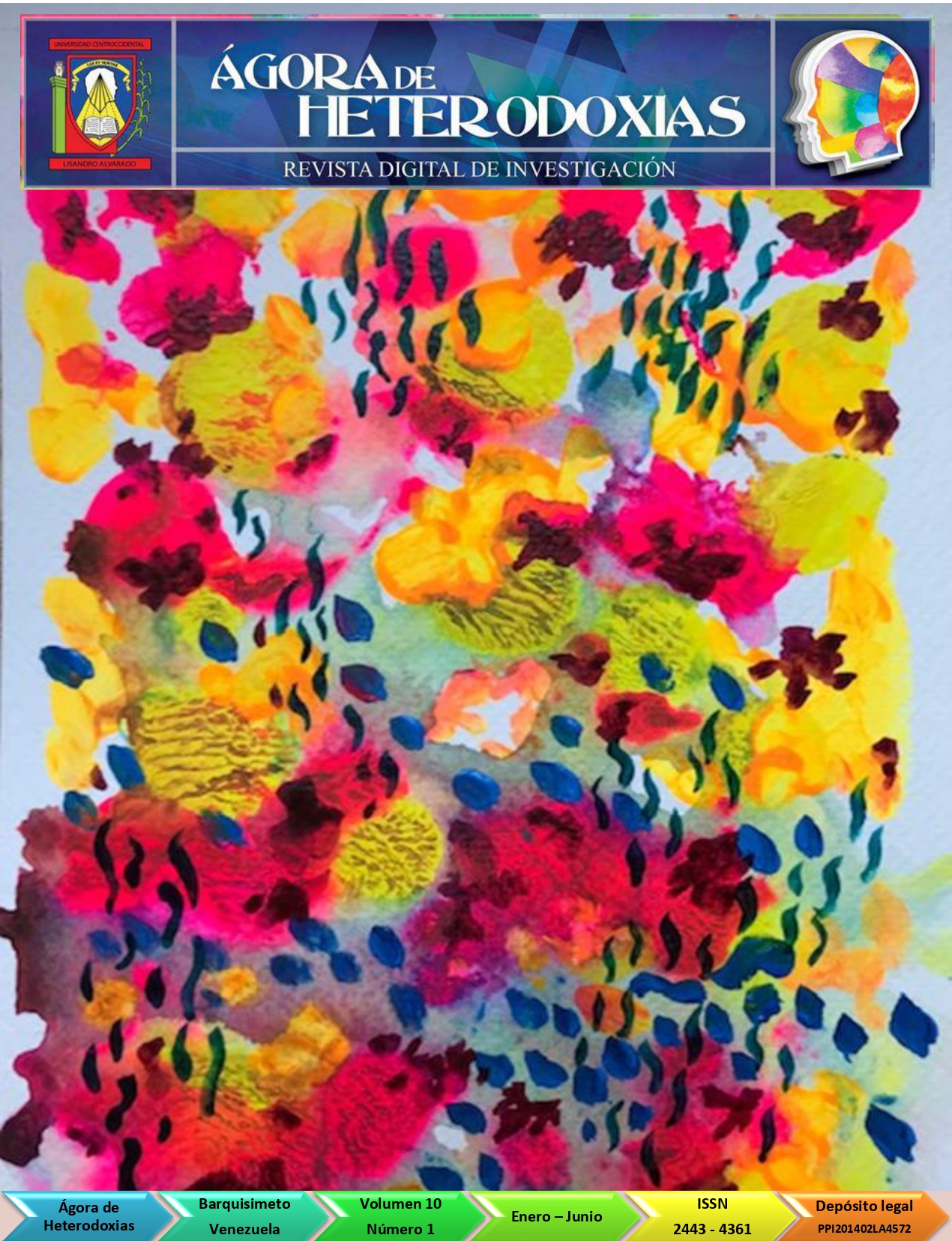Organizational systemic analysis in an uncertain, complex and transdisciplinary world
DOI:
https://doi.org/10.5281/zenodo.10622230Keywords:
systemic, organizational, complex, transdisciplinary, uncertaintyAbstract
The objective of this essay is to reflect on systemic organizational analysis in an uncertain, complex and transdisciplinary reality, which ranges from talking about “planetarization” in the 90s (Morín) to an emerging deglobalization according to the last World Economic Forum in Davos (2023). Morín's paradigm combines with Fayol's classical vision, Neilson and Paternack's organizational DNA theory, Chiavenato's systematics and Carrasco's perspective; interpret that effectively in a “planetary” environment with emerging signs of deglobalization, in the presence of complex and unpredictable social phenomena, change and uncertainty are normal, and therefore the analysis of organizations corresponds to an open and unpredictable systems perspective, where the manager must adapt to this chaotic, disruptive and accelerated normality, generating security in their decisions, so that organizational objectives can be achieved, avoiding falling into poor work organization. Through a reflective methodology, and with a theoretical panorama based on 4 authors, it is concluded that the organization in an environment of disruptive challenges, can fulfill its objectives efficiently, maintaining the unity Man (subject)-Organization (object) and their complex relationship as the sum of the whole
Downloads
References
Almanza Jiménez, R., Calderón Campos, P., & Vargas-Hernández, J. G. (2018). Teorías Clásicas de las Organizaciones y del Gung Ho. Revista Científica "Visión de Futuro", 22(1). https://www.redalyc.org/articulo.oa?id=357959311001.
Bonatti, P. (2020). La Administración del Siglo XXI: Organizaciones Transformadoras. Argentina: Pluma Digital Ediciones. ISBN 9789873645457.
Caicedo Escobar, C & Cortés Amador, C. (1997). Enfoque Sistémico de la Organización, la Tecnología y los Modelos de Gestión. Ingeniería e Investigación; núm. 37. https://repositorio.unal.edu.co/handle/unal/33778?show=full
Carrasco Muñoz, T. J. (2022). El Síndrome Burnout en la Empresa. Almanaque, (40). https://doi.org/10.58479/almanaque.2022.50
Carvajal, B. (2010). La Heterodoxia como Alternativa Metódica en la Teoría y Práctica Investigativa Universitaria. Reflexión Acerca de los aportes que realizan en Venezuela Alejandro Moreno y Miguel Martínez. Espacio Abierto, 19(1).
https://produccioncientificaluz.org/index.php/espacio/article/view/1378
Chiavenato, E. (2011). Administración de Recursos Humanos. El Capital Humano de las Organizaciones. McGraw-Hill/Interamericana Editores, S.A.de C.V.
Hernández-Sampieri, R.; Fernández-Collado, C & Baptista Lucio, P. (2014). Metodología de la Investigación. Ciudad de México, México. https://www.uca.ac.cr/wp-content/uploads/2017/10/Investigacion.pdf
Foro Económico Mundial (2023) Informe de Riesgos Globales. https://www.jubilaciondefuturo.es/es/blog/informe-de-riesgos-globales-2023-del-foro-economico-mundial-la-crisis-del-coste-de-la-vida-y-los-riesgos-medio-ambientales-son-las-principales-am.html
Gembillo, G (2022). El Método del Método de Edgar Morin. Gazeta de Antropología. Universidad de Granada. https://digibug.ugr.es/handle/10481/75995
Molina Medina, B & Romero Silva, M, (2018). ADN Organizacional para la Calidad de Servicio en las Universidades de Gestión Pública Colombiana. Revista de Ciencias Sociales (ve), Universidad del Zulia, Vol.XXIV, num.4, https://www.redalyc.org/journal/280/28059581006/html/
Morin, E. (2023) Edgarmorinmultiversidad.org. https://www.edgarmorinmultiversidad.org
Neilson y Pasternack. (2005). Results: Keep what´s good, fix what´s wrong, and unlock great performance. https://www.strategyand.pwc.com/gx/en/services/organization-strategy/strategyand- results-book-except.pdf. Crown Publishing Group.
Parra Guerra, C. (2023). La Gerencia Emergente en la era Digital. Editorial Independiente. Primera Edición. ISBN-13: 979-8860154902.
Ramírez Arango, J. (2007). Caja de Herramientas Gerenciales: Técnicas y Métodos de Aplicación Práctica en la Gerencia. https://n9.cl/srou5
Ramírez Arango, J. (2007). Caja de Herramientas Gerenciales: Técnicas y Métodos de Aplicación
Práctica en la Gerencia. https://n9.cl/srou5
Ramírez, S (1999). Teoría General de Sistemas de Ludwig Von Bertalanffy. https://www.google.co.ve/books/edition/Teor%C3%ADa_general_de_sistemas_de_Ludwig_Vo/siofrhfXsOwC?hl=es&gbpv=1&dq=teoria+general+de+sistemas+de+bertalanffy&printsec=frontcover
Real Academia Española (2014). Diccionario de la Lengua Española. Madrid, España. https://www.rae.es/
Torres Triana, A. (2020). Mirada Compleja y Transdisciplinaria del Objeto de Estudio de las Ciencias Organizacionales. Revista Scientific, 5(15), https://doi.org/10.29394/Scientific.issn.2542-2987.2020.5.15.3.67-86
Universidad Benito Juárez (2017). En qué consisten los análisis Top-Down y Bottom-Up. https://www.ubjonline.mx/en-que-consisten-los-analisis-top-down-y-bottom-up/
Urteaga, E. (2010). La Teoría de la Complejidad de Edgard Morín: Contribuciones y Límites. Diálogo filosófico, ISSN 0213-1196, Nº 78. https://www.dialogofilosofico.com/index.php/dialogo/article/view/263
Velásquez Contreras, A. (2007). La Organización, el Sistema y su Dinámica: una Versión desde Niklas Luhmann. Revista Escuela de Administración de Negocios, (61). https://doi.org/10.21158/01208160.n61.2007.425
Weber, M., & Abellán, J. (2010). Por qué no se deben hacer Juicios de Valor en la Sociología y en la Economía: (el sentido de "no hacer juicios de valor" en la sociología y en la economía). España: Alianza Editorial. https://fundacion-rama.com/wp-content/uploads/2023/01/2260.-Por-que-no-se-deben-hacer-juicios-de-valor-en-%E2%80%A6-Weber.pdf
Published
How to Cite
Issue
Section
Copyright (c) 2024 Yeniny Rodríguez Piñero

This work is licensed under a Creative Commons Attribution-NonCommercial-ShareAlike 4.0 International License.
![]() Authors keep their copyrights so articles can be reused for teacher and research purpose. Readers and users can also reuse articles for the same purposes but not for commercial purposes. Ágora de Heterodoxias has no responsibility on information given by collaborators which is not necessarily the point of view of the publication
Authors keep their copyrights so articles can be reused for teacher and research purpose. Readers and users can also reuse articles for the same purposes but not for commercial purposes. Ágora de Heterodoxias has no responsibility on information given by collaborators which is not necessarily the point of view of the publication



